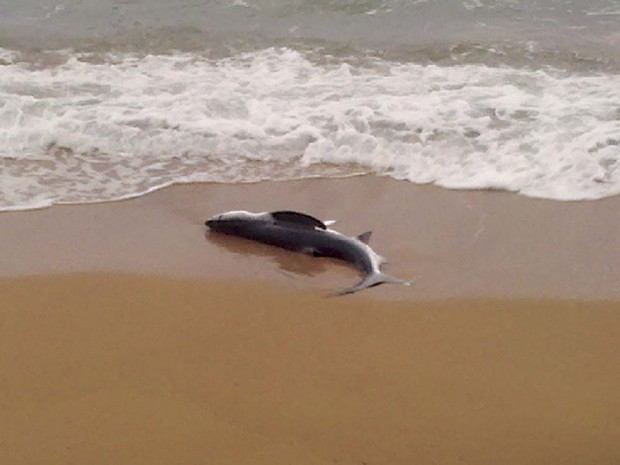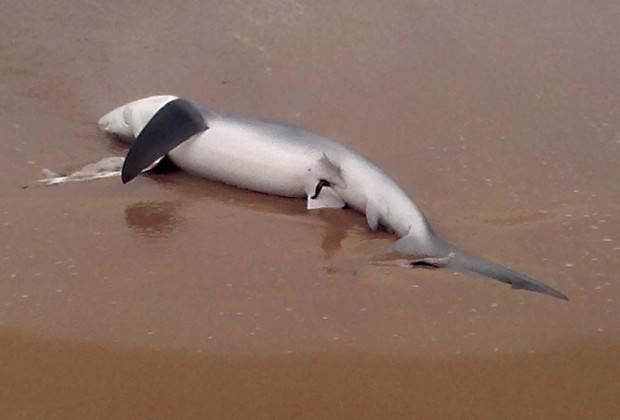Shark gives birth to pups on beach


KAPA‘A — A six-foot blue shark beached herself Sunday on the shoreline fronting Pono Kai, giving birth to several pups and drawing a crowd of interested onlookers.
Frequent Kaua‘i visitor Brenda Miles of Vermont described the scene as “awesome.” None of the local residents whom she talked to at church that morning had ever even heard of something like that happening here.
But she nor others at the scene were likely aware they were witnessing the final hours of the shark’s life.
State aquatic biologist Don Heacock said a quick field necropsy he performed on the pelagic fish pointed at the cause of death being a “hooking mortality.”
“It had three or four knife holes in the top of the head that at first glance looked like shark teeth bites but they were not,” he said in an interview Tuesday. “Someone caught it, didn’t want it and released it.”
Heacock said this particular species, prionace glauca, is typically a bycatch and discarded fish caught by longliners. He said the blue shark’s pelagic nature — meaning it spends its life away from shore in deep water — is what leads him to believe this particular animal was caught by a longliner or another fishermen and discarded.
“The unfortunate thing is that it was killed and wasted. Blue sharks are excellent eating,” he said.
“My recommendation to fishermen is if they catch a fish they don’t want they should either release it live or give it to someone,” Heacock said. “Wasting is not conserving.”
The biologist said the shark’s babies were born prematurely.
“Even if some swam away, the chance of them surviving is really low,” he said.
Sharks in general are important in Hawai‘i for ecological, cultural and economic reasons, he said.
“They are virtually the wolves of the sea where they primarily feed on the sick, the dead and the dying,” Heacock said. “They keep reef fish and ecosystems healthy.”
He did note that if a fisherman catches a shark, intentionally or not, the fish should be bled right away because it has urea in its bloodstream.
“If you don’t, it’s going to taste really bad,” he said.
Over the past year, Heacock said he has found three or four mature white-tip reef sharks — a timid shark relatively common in coastal waters in Hawai‘i — that were caught by shoreline fishermen and left to rot on the beach.
“I firmly believe in you take only what you need,” he said, again underscoring the important role sharks play in marine ecosystems.
